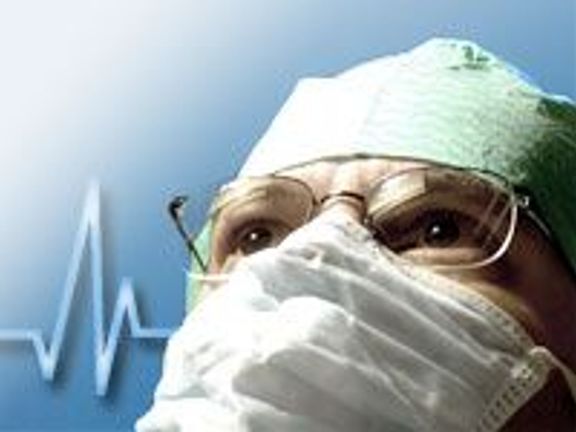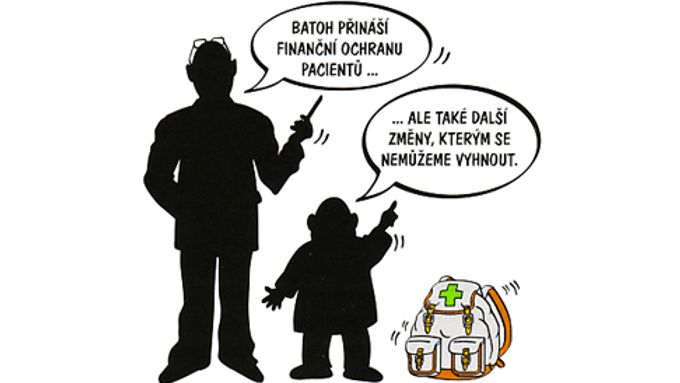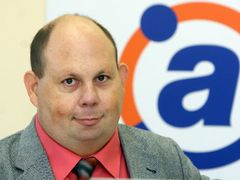Prague - The Velvet Revolution in former Czechoslovakia was famously accompanied by the ringing of the keys, suggesting the bell was tolling for the dying communist regime. The present government's health care revolution, which has been announced for the next year, is introduced by a different gimmick cartoons.
Two figures, very much suggesting the Minister of Health Tomáš Julínek and his spokesman Tomáš Cikrt, are going to guide people through the novelties introduced by the reform.
"Every year, doctors are writing out millions of medical prescriptions and health insurance companies pay billions of Czech crowns for them Yet, at the same time, we throw out almost one quarter of all the medicines," reads one speech balloon in a special guidebook, released by the Ministry of Health.
Ready, set, cash
Healthcare in the Czech Republic has been largely free of charge but from January 2008 this is going to change. People are going to pay 30 Czech crowns for visiting a general practitioner, an orthopaedist, a gynaecologist or a speech therapist. But only when the doctor makes a diagnosis.
Preventive check-ups, medical prescriptions or coming for the results of a previous examination won't be paid.

Infobox
Which services will be paid?
- 30 Crowns per visit to a doctor (different qualifications including psychologists and speech therapists)
- 30 Crowns per getting a prescribed medicine
- 90 Crowns per emergency visit
- 60 Crowns per day in hospital (and some other facilities)
Payments won't be required when
- a clinical examination is not done
- it is a regular check-up
- there is a laboratory or a diagnostic examination made
- dispensary care (seriously ill children and pregnant women), haemodialysis or blood donation
Source: The Ministry of Health
All these novelties are described in the special brochure called Directions for Use of the Czech Healthcre System in 2008.
"A pregnant woman won't pay anything for regular check-ups. However, if she boke her leg and needs a surgery, she will have to pay," cartoon figures say.
Besides detailed explanations, there is also a section with frequently asked questions which the ministry is bombarded with.
"My kids are visiting a speech therapist. Are they going to pay for every visit? Yes, in case it is a clinical examination by a speech therapist, they will pay 30 crowns. If they are only practising their speech, then they pay nothing," the brochure says.
What exactly does the term "clinical examination" means?
"In practical terms, this is when a doctor really examines the patient, asks him, what his or her problems are. It is an examination after which a diagnosis is made," Deputy Minister Pavel Hroboň explains.
Too many visits
Ministry hopes, that with payments there will be a lower number of average visits to a doctor. Every Czech goes to see a doctor thirteen times a year on the avarege. That tops all of the other European Union countries.
"We are expecting that the number of visits will fall down by ten percent. But it is just an estimate made according to international experiences," Hroboň says.
Now it is up to doctors and hospitals how they would collect the payments. "They can use some automated machine or, in bigger medical facilities, collect them at a reception, alternately nurses could be collecting them."
The form of payment also depends on every single medical facility. It can be in cash or by a credit card. Extracting the debts from those who are not paying is also in hands of doctors and hospitals.
"It is the same as in other parts of life. Who is not paying becomes a debtor. We expect however, that there is not going to be a huge number of non-payers," Minister Tomáš Julínek says.



